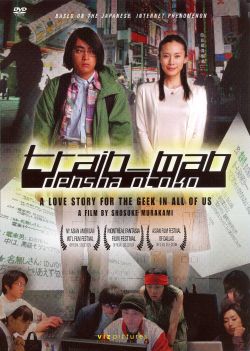One reason is that I'm not comfortable announcing my every day errands to the world. Another is that I don't want to get updates from anyone whom I don't regard as a friend. The English language has several accurate words for people you know but don't consider a personal friend, words such as "acquaintance" or "co-worker" or "distant relative." On Facebook, the use of the word friend is a real misnomer.
But here's the main reason why I don't like Facebook -- because I'm Japanese. In the Japanese culture, there is a tendency to lean toward anonymity, especially on the internet. This is my personal opinion, but many others who have commented on this say the same thing. Japanese tend to feel more at ease when they don't have to identify themselves. Compare that to Americans, who tend to feel confident about announcing themselves, including who they are what they have been doing, even in public forums. Enter 2Channel, the social media powerhouse that is Japan's answer to Facebook.
2Channel - A Gigantic BBS
While many Americans are spending time on Facebook, I browse around 2Channel / 2ちゃんねる, abbreviated as and called "2Chan" and written as "2ch". Whenever I wonder about the behind-the-scenes information of any kind, I check this site, a large Japanese text bulletin board.
2ch is a mega-collection of BBS (Bulletin Board System) threads. It has a huge list of categories from current news on pretty much topic you can imagine. Did you think the BBS was internet history? While it went away in many nations, this electronic forum for information exchange is alive and well in Japan. It is different from the regular SNS concept, however. 2ch doesn't promote user relationships. Almost everyone is anonymous. When there is a need to refer to one's identity in the conversation, the number of the earlier post is used instead of a name.
The Organization of 2Channel
According to Wiki, at present 2ch has 780 boards under 39 categories. Each board is called an "ita", or wood board. Each board carries hundreds of topics called "sure" (this is short for sureddo, or thread). In each thread people are supposed to talk about the topic (but of course some people don't).
Let me give an example that will illustrate how 2ch is organized. A "board" I frequently look is the Japanese Modern Age History Board. There are 355 threads today. Anyone used to be able to create a thread but they limit that now. Unpopular threads where no one posts for a while eventually disappear. Usually 300~400 threads are in a board. The threads line up according to the time. The thread which has the newest post goes to the top of the list in the board. In the Japanese Modern Age History category, at the moment the top one is "Let's talk about Nanjing Massacre #13" (#13 means this is the 13th thread under this topic). The board contains titled threads like the following: "Anticipating who will be pictured on the next money bill," "Thinking from the historical point of view about the prefecture where I don't want to live," "Consolidated thread about big-name historians," and regular threads for the fans of Japanese popular historic figures such as Sakamoto Ryoma, Takasugi Shinsaku, and Saigo Takamori. This is a board that features a moderate number of threads. Some of the boards that cover current events and issues are much larger and get posts from many more people on a daily basis. Do the math and it become apparent that 2ch has grown into a massive online community.
Almost all of the threads are text only. Quite a limited number of boards seem to allow you to add an icon. The users are anonymous but, because of such narrow topics they talk about, frequent users likely can guess who the regulars are. Frequent users of 2ch are called "neraa" or neller from 2Chan-neller. 2ch is not too popular with parents and teachers, since there are some users who could be considered possible threats to kids. In addition, a number of juvenile criminals post their intentions on 2ch before committing the crime. This has made big news before, shocking some and convincing others 2ch is a potentially bad site. This is the downside of online anonymity.
Conversations in each thread are not necessarily pleasant. There is no etiquette. The exchange of viewpoints can become quite heated and chaotic, especially in the case of current events and news. Some who post will be responsible and polite, but others, no so much. The forum is open to all commentary, be it rude, gross or harsh. But positive exchanges happen on 2ch, too.
 Consider the example of "Densha Otoko", or Train Man, a real-life 2Channel story that was featured in books, a movie and TV dramas and became a big hit.
Consider the example of "Densha Otoko", or Train Man, a real-life 2Channel story that was featured in books, a movie and TV dramas and became a big hit.The story originated in a thread on the "single men" board. It is about an unpopular and naive young man who helped a female passenger on a train. In return, he received an expensive gift from her as a gesture of thanks. He posted a thread on the board telling users about the kind thing she did. Later he went out with her, and wrote about that event, too. In the thread he asked others what to wear, where to eat, general date guidance. In the thread, people cheered for him and gave him advice. I won't reveal how the story ends, though! If you're curious, check online, you should be able to find and watch the movie.
Like Train Man, you'll notice there are many anonymous good relationships and support groups. I recently followed a thread titled "I can't take this anymore..." in a board. All the people in the thread encourage the poster who write about something difficult going on their lives.
 |
| ASCII Art "Monaa" |
Another big subculture featured prominently on 2ch is AA. Americans have probably forgotten the meaning of AA, or ASCII Art. Because there are few or no graphics or photos on 2ch, AA is the prevailing form of graphic. Some have become pretty well known, even for those who never use 2ch. You can see examples from this "board" or category in a site called AA Saloon. Click a thread in the board, the light green background block at the top. Some browsers don't show the AAs right, though.
There are many original characters like Monaa (see the cats above). Monaa is from a part of the saying "Omae mo naa (you too)". Here is an example. If a person posts this: "You stupid idiot, you don't know anything about it. Shut up!" then someone might post a Monaa saying "you too". In a busy thread, as soon as viewers notice someone picking on someone else, they will post the Monaa to say "you are the same". Many different AA characters besides Monaa exist, some with a complex personality. The 2ch AA character artwork can really make a thread lively. These characters come out here and there in conversations and lend a humorous edge to the thread.
Check out some popular Japanese smilies and AA characters from 2ch by navigating to the following URLs: (You may need to apply a Japanese character setting to view some of them.
Faces (smilies) http://matsucon.net/material/dic/kao12.html
Monaa http://matsucon.net/material/art/aa01.html
Anonymity Allows For Both Good and Bad to Surface
The reason I like 2ch is because it is so subcultural. Even with so many users, it retains that feeling of of communicating at an organic level, underground, behind-the-scenes. It never becomes mainstream, although its popularity is definitely one of the biggest social media forums in Japan, to my knowledge. All user posts are anonymous so you have to decide if you believe in and trust what other people say or not. People often request the source of the information in the threads, and a source might be cited, but you still have to go and do more research if you want to know whether that source is credible.
Many people play tricks or fool around. There are groups of people tend to fix the trend in the boards. Its all anonymous, so no one is responsible for what they post. No one can claim to be an original artist for ASCII art; there are no intellectual property rights in the world of 2ch. Behind the anonymity, people can say anything they want, good or bad. Therefore 2ch is not for everyone. Naive people should be cautious with it.
But if you know how to handle information, 2ch is a treasure chest of information. Real voices of all kinds of people of any age, contribute both garbage and treasure all mixed together. While instances of crime can be broadcast, so can help be extended to someone in need. On 2Channel, many people laugh, ponder, and contribute every day. Anonymously. No recognition or applause. 2Channel is a prime example of the art of anonymity that provides a front row seat at the workings of human nature, exposing the good, bad, difficult, and humorous which, more often than not, includes a sense of hope.

